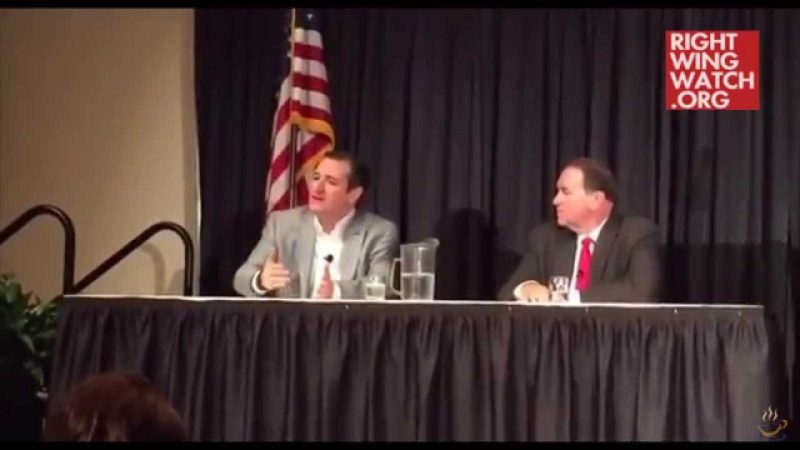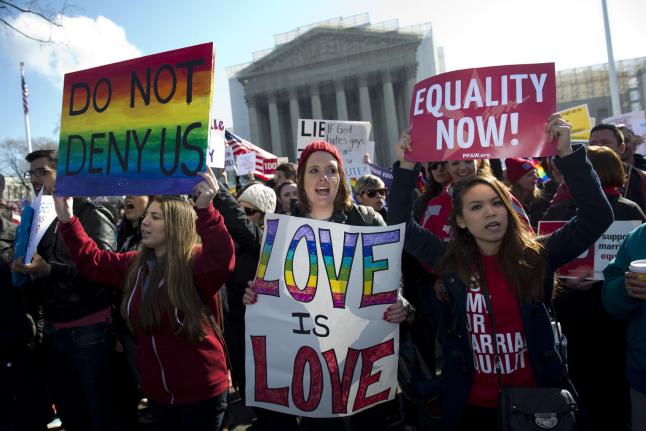Last week we mentioned the situation in North Carolina where conservatives are threatening to sue in an effort to keep an atheist out of office, citing the state Constitution:
When Mr. [Cecil] Bothwell was sworn into office on Monday, he used an alternate oath that does not require officials to swear on a Bible or refer to “Almighty God.”
That has riled conservative advocates, who cite a little-noticed quirk in North Carolina’s Constitution that disqualifies officeholders “who shall deny the being of Almighty God.” The provision was included when the document was drafted in 1868 and was not revised when North Carolina amended its Constitution in 1971.
One opponent, H. K. Edgerton, is threatening to file suit against the city to challenge Mr. Bothwell’s swearing in. “My father was a Baptist minister,” Mr. Edgerton said. “I’m a Christian man. I have problems with people who don’t believe in God.” Mr. Edgerton is a local civil rights leader and founder of Southern Heritage 411, an organization that promotes the interests of black Southerners.
David Morgan, the head of a conservative weekly newspaper, The Asheville Tribune, said city officials had shirked their duty to uphold the state’s laws by swearing in Mr. Bothwell.
The Supreme Court already ruled unanimously against such religious test provisions back in 1961 in a case out of Maryland:
We repeat and again reaffirm that neither a State nor the Federal Government can constitutionally force a person “to profess a belief or disbelief in any religion.” Neither can constitutionally pass laws or impose requirements which aid all religions as against non-believers, and neither can aid those religions based on a belief in the existence of God as against those religions founded on different beliefs … This Maryland religious test for public office unconstitutionally invades the appellant’s freedom of belief and religion and therefore cannot be enforced against him.
But Bryan Fischer of the American Family Association, while not mentioning the Bothwell case specifically, doesn’t seem to a) care or b) be aware of the Court’s ruling and says that such restrictions are perfectly constitutional:
Our secular fundamentalist friends are fond of citing Article VI of our Constitution as proof that this foundational document is non-religious in nature. It reads, “”but no religious Test shall ever be required as a Qualification to any Office or public Trust under the United States.”
It’s worthy of note that this applies only to federal offices, for the prior clause makes it clear that the Founders were distinguishing between the federal government – “the United States” – and the legislatures of the individual states, which are referred to as “the several State Legislatures.” Both are included in the previous phrase, “all executive Officers, both of the United States and of the several States, shall be bound by Oath or Affirmation, to support this Constitution.” (emphasis mine)
This makes it clear that while officers at both the state and federal level were required to support the Constitution, the restriction on the application of a “religious Test” was reserved for officials in the federal government. States were left to apply explicitly religious tests if they chose, and most did.
Almost all states required holders of public office to declare a belief in God, and many went beyond that to require a belief in the inspiration of both the Old and New Testaments, which in effect limited public service to self-professing Christians. This was just fine with the Founders, who wanted the states to have complete liberty in such matters.
But they were also clear that no religious test was to be applied as a condition of public service at the federal level. What the Founders meant by this, however, was this and this alone: an individual did not need to belong to a particular Christian denomination to be eligible for federal office. That’s it.
Of course, we already knew that Fisher had some rather unique views regarding the First Amendment and the separation of church and state and doesn’t think that Muslims should be allowed to serve in the military.








